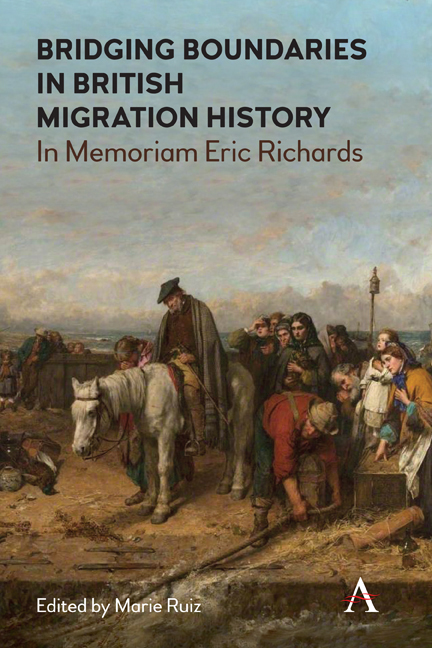Chapter 4 - Religion and Convict Emigration: The Probation System in Australia
Published online by Cambridge University Press: 20 January 2022
Summary
This essay provides a welcome opportunity to reflect on a particular problem, that of the deployment of emigrant clergy to support the reformation of prisoners forcibly transported to Australia in the nineteenth century, in the light of the research and insights of the late Professor Eric Richards. I first had an opportunity to address the issues of emigration and religion in a session organized by Kent Fedorowich and shared with Richards in Bristol for the 2007 British World conference. On that occasion I benefitted from extended discussions with Richards on the characteristics of the clergy as a category of professional emigrants in the British World. We agreed then that churches were highly significant vectors for the transmission of cultural markers of identity, so much so that ethnic and religious communities invested in importing their clergy direct, rather than raising up their own, for much of the mass migration era. I also argued that it was important that religion be integrated into other modes of interpreting imperial diasporas rather than seen as a subset of ethnic identity or – as is commonly the case – simply ignored.
Eric Richards wrote a great deal about immigration, always rejoicing in the exuberance and idiosyncratic voyages and journeys of those who chose to leave the islands of Great Britain and Ireland in the nineteenth century and delighting in the Australian case. He wrote occasionally and intermittently about religion, usually to debunk its claims to be regarded as central or critical to the factors which led people to choose to emigrate. What interested him most were motivations and personal choices, particularly of those with little money or connections, not the generic and manufactured narratives of Exodus and Chosen Land, providence and destiny. He was even less enthusiastic about those Victorian advocates of emigration who might claim, like John78 Ramsay McCulloch (1789–1864), that emigration was a ‘gain to humanity by the establishment of arts, science and religion in the vast wildernesses of America and Australia’. For Richards, this was something delusional, part of the emotional muddle that Victorians became entangled with when trying to explain why so many chose to leave Britain and Ireland in such unprecedented numbers.
- Type
- Chapter
- Information
- Bridging Boundaries in British Migration HistoryIn Memoriam Eric Richards, pp. 77 - 94Publisher: Anthem PressPrint publication year: 2020



